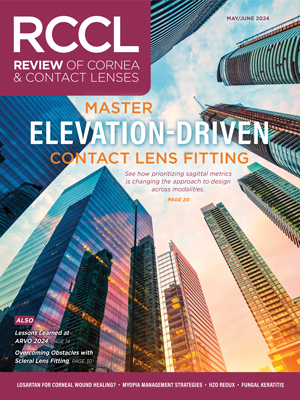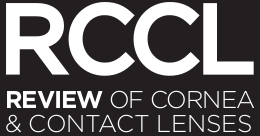Establishing a specialty practice in optometry hinges on one concept: differentiation. As you think about starting your own specialty practice, think about how you want to define yourself and what qualities you have that will separate you from the average practitioner.
There are several ways to single out your practice—price, convenience and customer service are a good start. However, offering the lowest price is challenging for the private practitioner, and is likely a losing battle when you factor in competition from “big box” vision retailers. Similarly, using convenience as a platform to set yourself apart is difficult in today’s world of seven-day-a-week retail and the power of the Internet. Keep in mind, it is impossible to satisfy both the patients who are looking for convenient service and those only interested in price. Differentiating ourselves through stellar customer service can be difficult too since exceptional patient customer service is considered the norm these days in optometry.
That leaves us with one timeless, and always successful, differentiating factor: professional expertise, or the power of the specialist. Use your advanced professional education and experience, along with knowledge of and access to the most advanced technologies, to position your specialty practice as something quite different from the norm.
Dedication
Dedication to a specialty is not easy. To be a true specialist, you must first accept that you cannot be an expert in all areas of eye care. Instead, you have made the decision to select an area of specialized service to commit to.
There are two distinct approaches to specialty practice. The first is to select your area of specialization and dedicate your practice to that one area of distinction; examples of such specialty practices include specialty contact lenses, pediatrics, binocular vision, low vision rehabilitation and glaucoma management, to name a few. Professional integrity stems from your ability to know when to refer out cases that require care from other specialists in areas outside your sphere of expertise. In fact, optometry, as a profession, would greatly benefit from an expansion and emphasis on inter-optometric referrals.
The second approach is to create a multi-specialty group practice where each associate would have his own area of expertise and specialization. In such an environment, most inter-optometric referrals would occur within the multi-specialty practice.
Education
Education is the cornerstone of a specialty eye care practice. A true specialist will have the knowledge and patient management skills to validate the perception of expertise. There are numerous ways to gain the advanced knowledge required to specialize in a specific area of eye care, starting with a residency program. These placements offer the required advanced training—academic and clinical—in a relatively short period of time. During a residency, practitioners have the opportunity to see a large number of cases within the specialty area, interact with highly experienced attending optometrists and educators, conduct research and network at professional meetings.
If you are working in a clinical environment that has other experienced specialists and a high volume of patients, you can, in essence, experience an “unofficial residency.” In many cases, the combination of clinical experience, dedicated ongoing continuing education, regular readings of new publications in your specialization and involvement in niche organizations can be equivalent to an official post-doctorate residency program. And, remember that experience can only be gained through extensive patient management.
Continue your education by joining professional organizations, specialty sections and fellowships such as the American Optometric Association, American Academy of Optometry, College of Optometrists in Vision Development, American Academy of Orthokeratology, Optometric Council on Refractive Technologies, Ocular Surface Society/Tear Film Ocular Surface Society, Glaucoma Society, Retinal Society and Neuro-Optometric Rehabilitation Association, to name a few. These memberships help you network and brand yourself as a specialist, while giving you a glimpse of the new research being conducted in the field. Take advantage of the opportunity to join a leadership role. Finally, maintain academic affiliations with optometry colleges or hospitals and medical centers; these institutions often see unique cases, giving you a chance to develop your own expertise and learn from other experts in the field.

Specialty practices should incorporate the latest technology.
Staff Lessons
Once you have the education and experience necessary to open a specialty practice, the next step is to find an equally educated and experienced staff. Most optometric practice staff can be divided into three basic organizational departments: administration (business staff, reception, billing), professional services (optometric/ophthalmic technicians) and optical. For a successful practice, all three must independently and collectively understand your mission and be knowledgeable about your specialty.
You can work to achieve this goal by scheduling regular educational office meetings, support staff continuing education and encourage advanced achievements such as certification programs. Remember that you create the image of your practice by externally communicating the specialized services you want to deliver. Get your staff involved in outreach programs within the community to help spread the word. Be consistent and repeatedly project your image through various outlets—newsletters, pamphlets, on-hold phone messages, websites, social media networks, blogs and printed materials in your office.
If you and your staff continue to promote your specialty, industry representatives will soon visit your office and use your practice to market their products to other practitioners. This helps your practice evolve and further brands you as a specialist.
Partner with local schools and community programs to offer vision screenings and set up speaking engagements; these opportunities to promote your practice will encourage potential patients to seek your expertise. Advertise an open house specialty “how to” program in your local newspaper. This type of event will help publicize your expertise, increase your practice visibility and solidify your credibility as a specialist. Communication is the key in developing more of a local presence in your community.
Take advantage of information technology systems like Demand Force (www.demandforce.com) and Web Systems 3 (www.websystem3.com) that were developed to increase patient communication. These software options are an automated marketing and communications solution that helps you grow revenue, retain and engage your existing customers and track marketing results. They integrate directly into your management system and turn your customer base into a powerful social network.
The backbone of these systems communicate through cell phone texts, email and phone communication is the trifecta of integrating your practice into a patient’s daily routine. Features such as the ability to make appointments online, to download medical health forms instantaneously, automatic newsletters, facebook integration, surveys/reviews, marketing campaigns and an educational website all add to the perceived value of your practice and further help in creating your desired image.
Technology
Technology will help you become a specialist. Incorporate the latest in diagnostic and therapeutic instruments into your practice and you will stand out.
In the past, it would take years of clinical experience to develop the skills needed to identify subtle changes in ocular structures associated with the early phases of eye disease. Even then, many experts would disagree on the diagnosis. Today, with the advent of technologies such as anterior and posterior segment OCT, we can observe tissue changes that were previously impossible to visualize.
Refractive anomalies are now evaluated with wavefront and point spread function devices that can identify changes in the optical properties of the visual system never before realized. Similarly, tear osmolarity and lipid layer analysis are new technologies in dry eye specialty practices. Electro-diagnostic procedures, such as visual evoked potentials and electro-retinograms, can provide an in-depth analysis of objective functions of the retina, optic nerve and visual cortex.
With these new technologies come improved lines of communication. We are now seeing an increase in cross referrals. Optometrists can specialize in niche areas like diabetic management by utilizing advanced retinal imaging to work hand-in-hand with endocrinologists. The key is early diagnosis and specialized therapeutic options—an effective combination that can be credited to the advanced technology available in specialty practices.
Literature and Research
Lecture and write in professional publications to establish yourself as a credible specialty eye care provider. Once published, other practitioners will learn of your expertise through the literature. You will likely see an increase in referrals, another step toward branding your practice. As you make the circuit as a speaker and a writer, others will perceive you as a specialist. This, in turn, will lead to new consulting opportunities and advance your status within the specialty. Get started by volunteering to speak at local optometric society meetings. Contact your partnering laboratories, contact lens manufacturers or pharmaceutical companies and ask to present new information to your peers.
A key element of any true specialty practice is research and development. Your involvement in clinical trials not only gives you access to cutting edge technology, but including your patients as subjects in your study will serve as a continuous reminder that they are part of an advanced eye care environment working to promote better eye health and vision for everyone. As an added bonus, your involvement in research and development will give you new material for writing, lecturing and consulting.
The best way to join a research and development team is to let your lab, manufacturing and pharmaceutical representatives know about your area of specialization and interest in participating in clinical studies. Once you get started, you’ll likely find yourself being invited to participate in many such events over time.
Marketing
Once you have the experience and qualifications to be considered a true specialist, marketing will help increase the flow of patients to your practice. The most effective and cost efficient tool you have is internal marketing. Leverage your patient loyalty to spread the word. Another option, albeit far more costly and less efficient, is external marketing; public relations efforts are the most effective use of marketing dollars. If you can get the word out about your specialty services without appearing to advertise, patients will seek out your care. Focus on newspaper write-ups and interviews on radio and television to develop a credible and knowledgeable public persona. Consider hiring a public relations consultant with contacts in the industry to help spread your story to the media and initiate in-service media training to prepare you for an external marketing campaign. Internet campaigns on YouTube or Internet blogs are also effective strategies.
The hallmark of a successful practice is your ability to stand out. Once you decide on how to differentiate your practice, implement your efforts with integrity, creativity and ingenuity. We recommend differentiating yourself by specializing your practice. We have used the above outlined principles to develop our own successful specialty practice—EyeVis Eye and Vision Research. Remember that your continued success as a specialty practice hinges on your ability to evolve and stay abreast of new developments.
Dr. Davis is co-founder of EyeVis Eye and Vision Research Institute. He is a Diplomate in the American Academy of Optometry and an inductee in National Academy Practice in Optometry. He practices in Oak Lawn, Ill.
Dr. Eiden is president and medical director of North Suburban Vision Consultants, a multispecialty eyecare practice in Deerfield and Park Ridge, Ill. He is co-founder of EyeVis Eye and Vision Technologies and Research Institute and immediate past chair of the AOA’s Contact Lens and Cornea Section.


